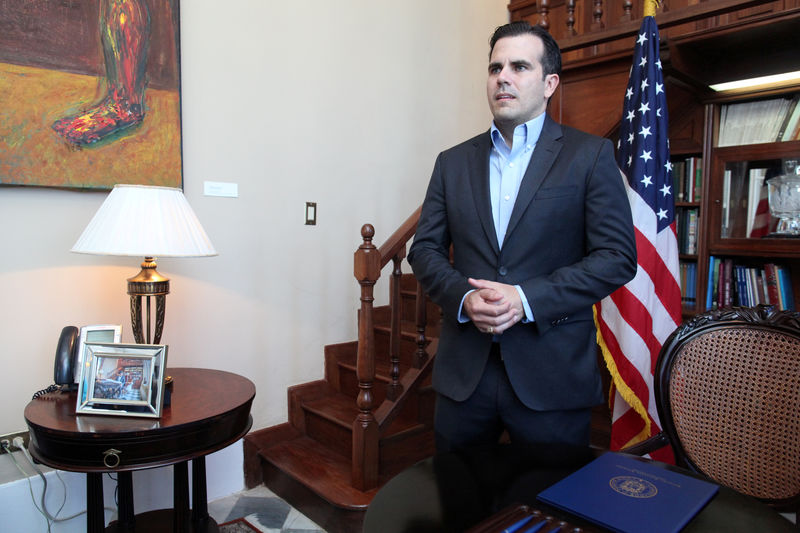By Luis Valentin Ortiz
SAN JUAN (Reuters) - Puerto Rico’s federally created fiscal oversight board on Monday imposed a fiscal 2020 budget on the bankrupt U.S. commonwealth that for the first time limits spending choices by its government, according to the board's executive director.
Natalie Jaresko said the $20.2 billion budget for the central government that includes $9.1 billion of general fund spending complies with the fiscal plan for the island, which filed a form of bankruptcy in 2017 to restructure about $120 billion of debt and pension obligations.
"It reflects the priorities of that fiscal plan - public safety, healthcare, education and the continued right-sizing of the government," Jaresko told reporters.
She added that the budget for the fiscal year that began on Monday contains new "detailed" spending levels that will prohibit the government from moving money around to pay for things not in the fiscal plan like employees' Christmas bonuses.
Governor Ricardo Rossello told reporters the board did not include the bonus payment in last year's budget but "we found a way to pay for it."
Puerto Rico lawmakers on Sunday approved an approximately $9.6 billion general fund budget that includes roughly $500 million in pension and healthcare payments previously paid by cash-strapped municipalities and public corporations, as well as money for bonuses.
“Those monies are not in the budget nor the certified fiscal plan,” Jaresko said, adding that municipalities must seek ways to increase their own revenue.
Christian Sobrino, the governor’s fiscal oversight board representative, said the government is analyzing the board's budget and “reviewing the mechanisms that will be used to implement public policy measures that the board has sought to impede through the budget.”
Last year, Rossello sued the board over its imposed budget, arguing the panel exceeded its powers. U.S. Judge Laura Taylor Swain, who presides over the island’s bankruptcy process, ruled in August that the board has broad and exclusive authority over Puerto Rico’s budget under the federal PROMESA Act, although it cannot demand changes in law.
Faced with similar differences between the board and the elected government over this year's budget, Jaresko said on Monday that “there’s no reason to go to court” given Swain's ruling.
Meanwhile, the board said it sued certain fuel suppliers of the island’s bankrupt power utility, or PREPA, over the weekend to “recover potentially billions of dollars in fraudulent payments,” related to the delivery of substandard fuel between 2002 and 2015, according to statement.
